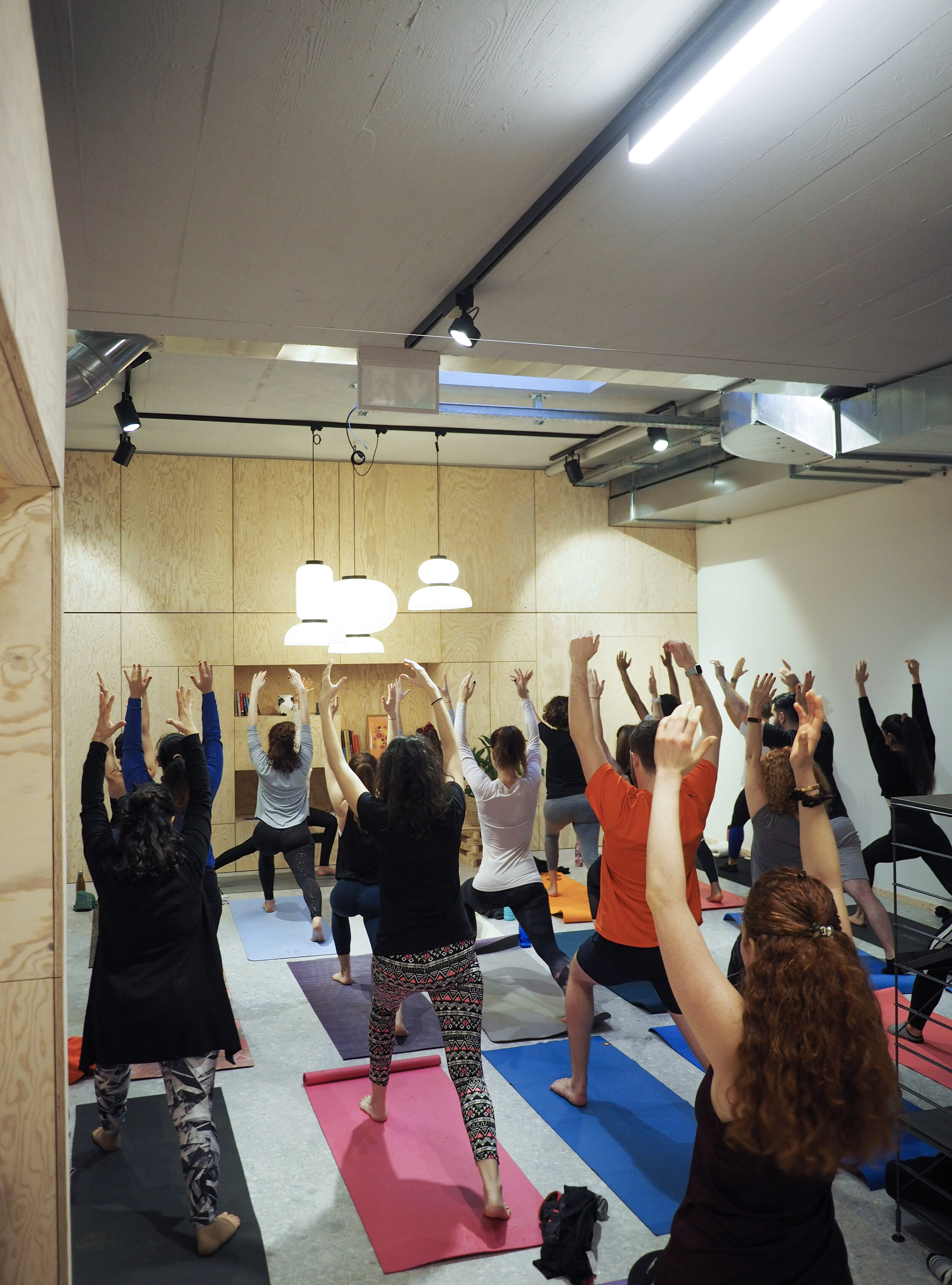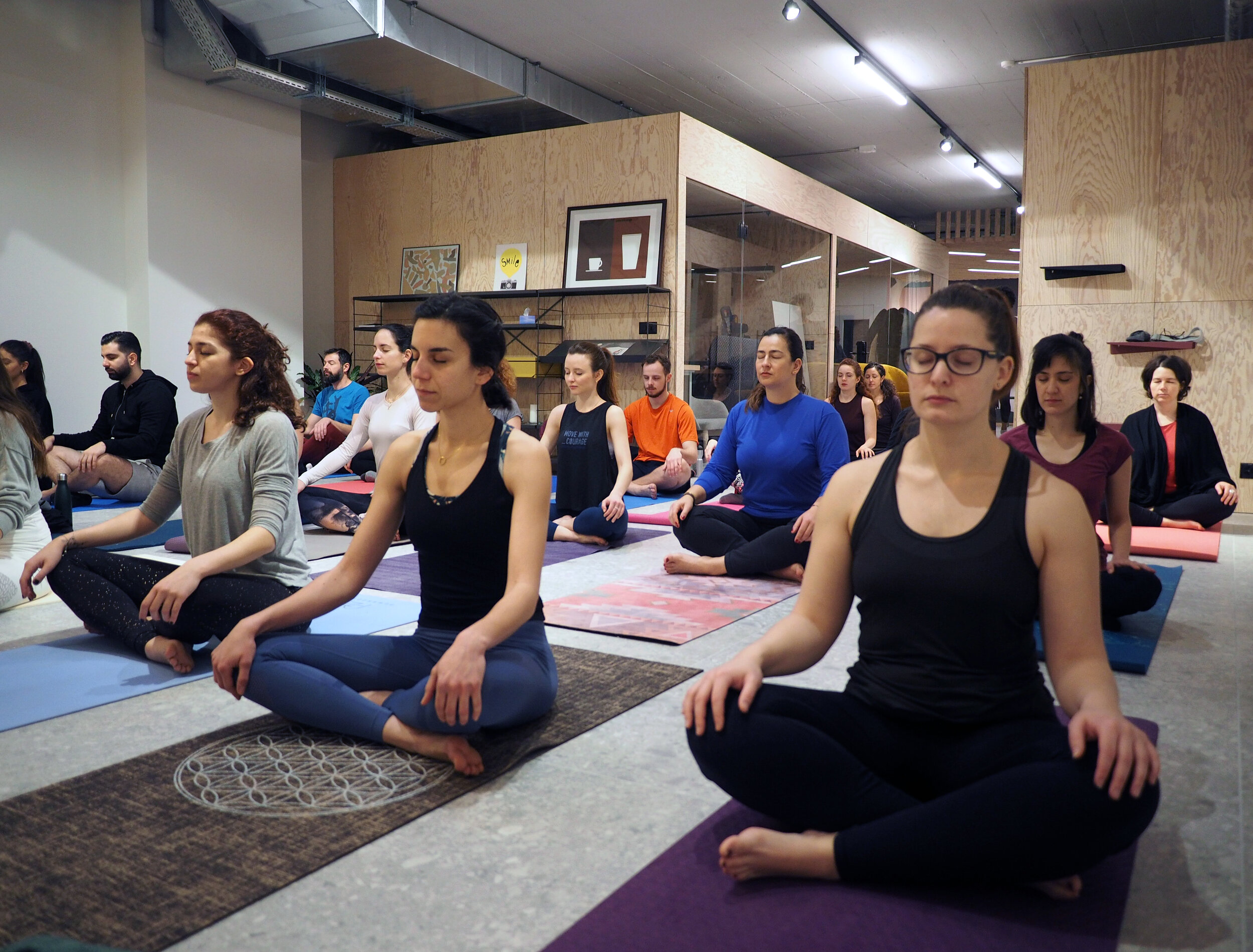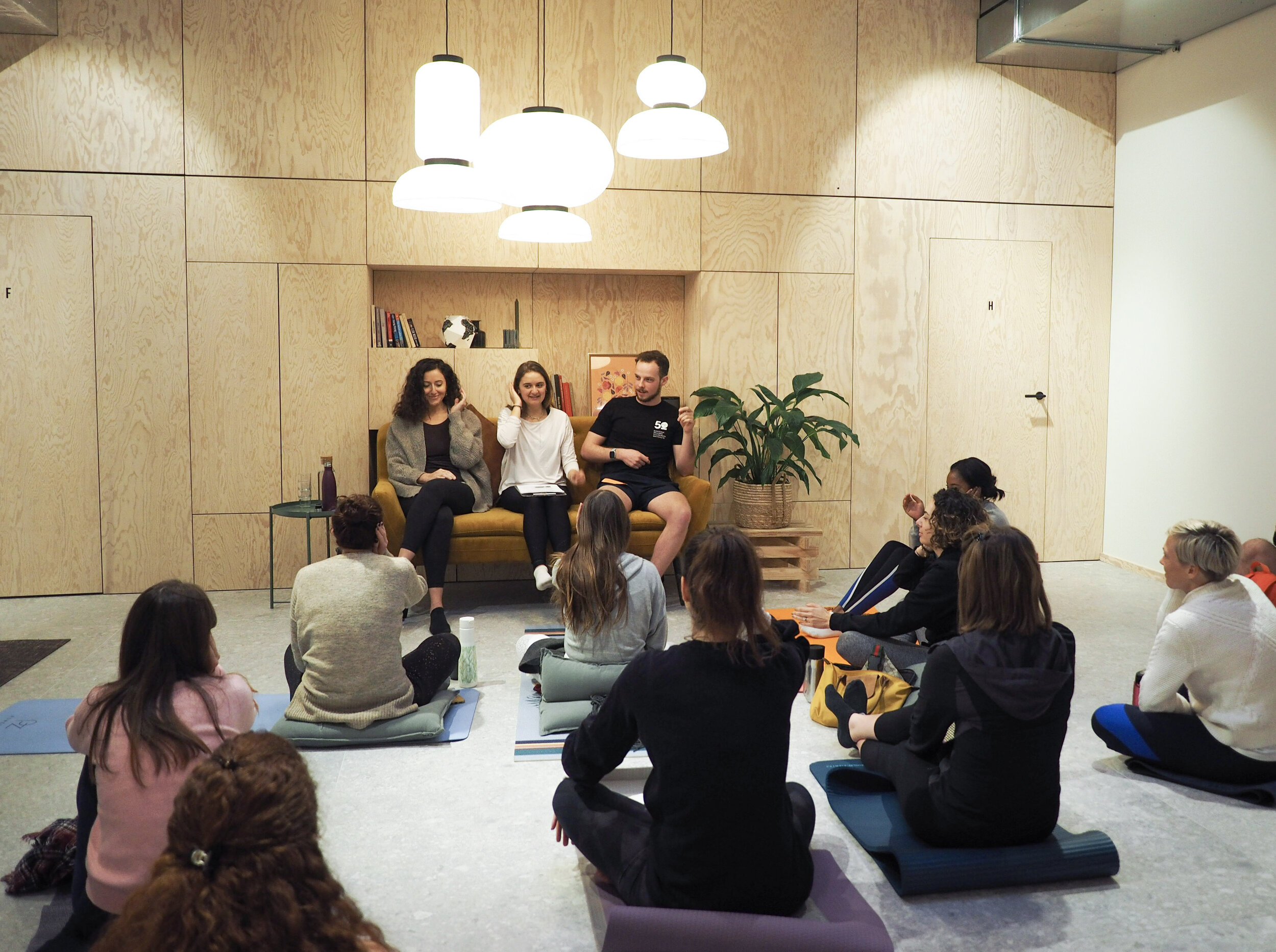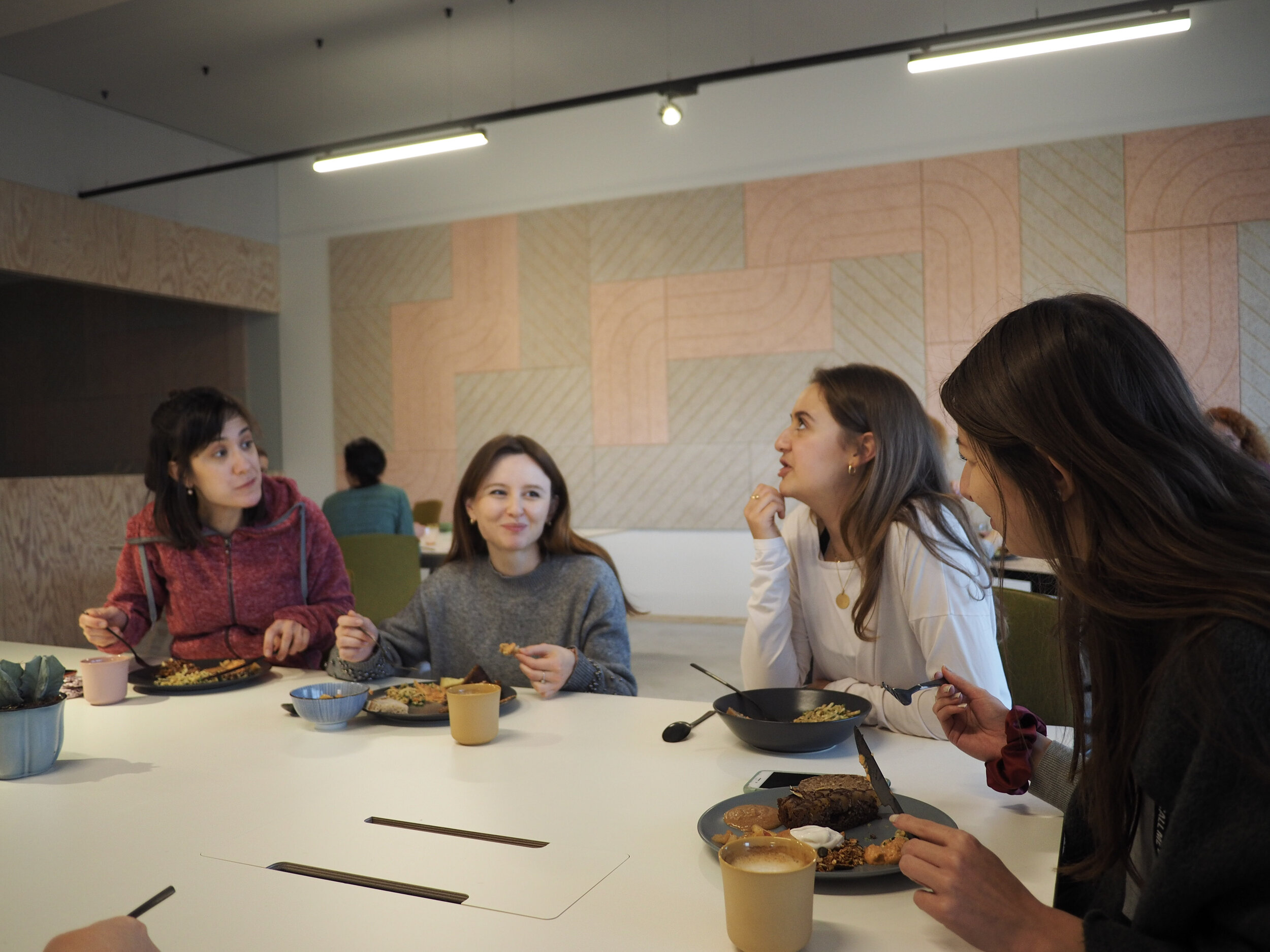EVENT RECAP: The Brunch Club - New Year New You?
Earlier this month we had our very first Brunch Club of 2020: New Year, New You? Resolutions, Goal-Setting & Self-Sabotage
We spent a perfect morning in the beautiful Cospire space in Lausanne…
STARTING WITH THE CREDITS
As always, the event simply would not have been possible without the support of all the collaborators, sponsors and helping hands.
A big thank you to our panelists Oskar & Hiba, to Lara’s Brunch for the incredible brunch buffet, to Maria for the pictures, to Cospire for the space, to The Goodlife Coffee for the brew, to Le Smart Cafe for the truffles we brought home with us, and every single one of you for coming!
Now onto the event recap…
WE BEGAN WITH A GROUNDING YOGA FLOW
THEN WAS THE DISCUSSION
The topic of this Brunch Club revolved around goal-setting, resolutions, intentions & self-sabotage. With the insights of Oskar and Hiba, we dove deep into what is the difference between and intention and a resolution, what kind of goal-setting routines are most likely to lead to success, what we need to keep in mind when setting goals, and why, despite our best intentions, do we sometimes struggle to stick to our goals.
Oskar and Hiba’s approaches to goal-setting, despite being slightly different, we’re extremely complimentary. If you missed the discussion, here were some key take-aways:
Hiba used the metaphor of having a village inside you, to describe how we all have conflicting desires. She described how you might have a little soldier in the village - who wants to you get up early and do a HIIT workout before work. But you might also have the chilled student in your village, who just wants to take it easy and have an extra snooze. One is not better than the other, both serve you but in different ways.
This is the root of self-sabotage: we think that the “chilled student” is trying to stand in the way of our success however this isn’t the case. It’s important to thank the “chilled student” (or whoever in the village is stopping you from completing the desired action) - and understand what their motive is. Maybe they’re protecting you from a fear of failing, maybe they stand in the way when you’re too tired and haven’t gotten enough sleep. Understand the motive behind the villager who’s stepping in and see if you can find another way to satisfy them.
Both Hiba and Oskar stressed several times the importance of start small when working towards greater goals. Hiba even said “start so small it would be ridiculous not to do it”
Hiba mentioned how one of the main reasons why people don’t stick to their goals is because they put too much importance on the goal. The importance should instead be placed on the the value behind the goal, or the “why”. Why do you want to get an early morning workout in? Is it to train for a race, or is it simply to take care of your body? If it’s to take care of your body, maybe on days where you went to bed later than expected, having an extra few minutes sleep would actually be more in line with your values rather than forcing yourself to the gym on too little sleep.
Alternatively, you can think of your goals in terms of “feeling objectives” because ultimately the reason we set ourselves goals is to get a certain feeling out of it. Using the same example, maybe you want to take care of your body because you want to feel confident in your skin, or maybe you’ve signed up for that race because you want to feel proud of yourself. It’s key to understand what feeling you’re hoping to get out of it, to avoid “destination obsession” where you think everything will sort itself out when you achieve your goal. The risk is that you reach your goal physique but the feeling of confidence won’t follow. Maybe you’ll pass the race finish line but you still won’t feel proud because you’re focused on your race time.
When it comes to building habits, Oskar taught us the 4 golden rules of habits:
Make it easy: give yourself the biggest chances possible to succeed
Make it obvious: is it a SMART goal? Do you know specifically what you want to do?
Make it attractive: make it as fun or enjoyable as possible
Make it satisfying: can you find a way to get immediate positive feedback?
Oskar gave us a few concrete, actionable practices to stick to new habits such as:
Habit stacking: Stack your new desired habit along side an existing habit you already have (ex.: say your affirmations while you brush your teeth)
Identity theory: You’re more likely to stick to a new habit if you embody the identify (you want to start running? Not someone who is “trying to run daily”, you are now a runner)
Be consistent (especially at the beginning): When you’re implementing a new habit, try to do as long a streak as possible. When you break the streak, you make it okay to do so. This is why 30-day challenges do work, if you make sure you check off every single day
AFTER ALL THE TALKING… CAME THE BRUNCHING
If you’ve ever had food from Lara’s Brunch then you know what I’m talking about… If you haven’t, well here’s a bit of eye candy to drool over. As always it was amazing. Paired with perfect coffee from The Goodlife and we were in brunch heaven.
We left happy, full, inspired and ready to tackle a new week and new month… and with goodies from Le Smart Cake to keep us company on the journey home!
pictures taken by Maria Mahdessian.











